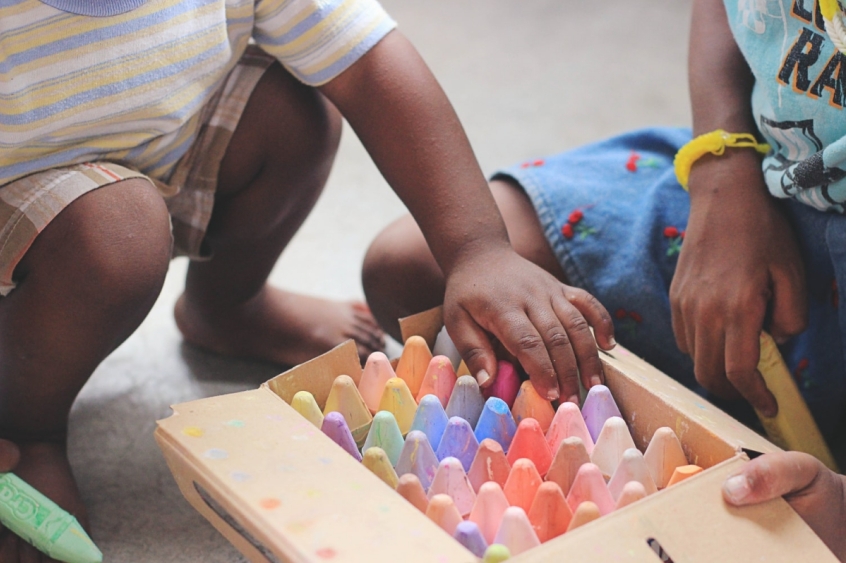
I often see short posts on how 'parents' can grow resilient faith in their children - usually coming from a negative position of 'stopping them leaving the church', rather than the positive position of supporting parents and caregivers as they nurture their children into a faith that flourishes, deepens and stays.
Advice on keeping children in church ranges from how we discipline, to teaching children memory verses to keep them on the 'right path'.
But surely it's more than that?
Actually, developing lifelong resilient faith in our children is more than just one thing, and although we recognise the family as the power house of spiritual nurture, it is also the responsibility of the whole church. That's right – everyone! Whether that be through prayer, welcome, our example or getting alongside a family, we need to be participants in helping our children to thrive. It is not the sole responsibility of the children and family worker – even if we pay them!
We also need to look at more than just one area of faith development. Children who are growing in faith are not just expanding their Biblical knowledge, they should be growing in character and wisdom too. We need to look further than the simplistic 'tell a Bible story and that will do' approach. We need to be holistic – in other words we should look at the whole child and their environment in the right cultural context.
We also need to be aware of those children from an unchurched background who won't have a parent cheerleading them in their spiritual growth. These children need their faith community even more.
As per my usual approach, I'm going to ask questions for you to ponder and not give many answers. As you think, the answers should become clear!
Think about your Church community. As I've already said, parents have the prime responsibility, but faith development is a whole church undertaking. Is your Church a place where children can flourish, be welcome and viewed as equal participants in worship? Are families, whatever they look like, supported in the faith formation of all in their household?
Where do we create space for children to encounter the living Jesus for themselves, rather than just sharing an out of context two dimensional story? Do we give them the full story of the Bible – in context, warts and all, and the space to ask the difficult questions without judgement? Is there space for the whole church family to pray together in a way that ALL can engage with?
What dialogue do you have with the children in your church? Are they listened to without feeling patronised? Do you give space for peer to peer support and encouragement to happen, and what about mentoring? Is there opportunity for a young person to safely build relationships with older Christians?
I had many unofficial aunts who taught me practical skills whilst checking on me spiritually, all done in the most natural way it's only now I can name it. Is talking about spiritual things outside of Sunday modelled as a normal thing? Children learn by seeing and hearing – so our actions often speak louder than our words.
Do we celebrate milestones in a child's life? Moving schools, achievements, birthdays? And what about those key spiritual moments in a child's life? Not just the Baptism or the Confirmation, but those moments when a child has been impacted by a greater understanding of God. And what of those times at camps, holiday clubs, festivals and conferences when they come back full of what they have learned? Are we celebrating this with them and allowing them to speak openly about it?
Do we dismiss what appears to be the child 'becoming a Christian' yet again, when it is actually a child accepting Jesus with a new level of understanding – which doesn't invalidate the first or second time this has happened.
Are we allowing our children to be a part of the action? To be active participants or even the instigators of mission? Do we make space for and encourage the practical outworking of their compassionate responses to the world around them? Are they allowed to call the church to action on issues or areas of opportunity that may have been overlooked?
Let me sum all that up: Are our children welcomed into our communities, introduced to Jesus in every possible way and given the space to respond? Do they have space to talk out their faith and be listened to? Do we celebrate both them and their faith journey? Do we encourage their participation and opinion in both mission and service? And – are their families supported?
From all that, it seems building resilient faith is much bigger than discipline and learning a bunch of memory verses.
Happy building!
If you want to expand more on this, do visit www.faithfullgeneration.com for more thoughts and ideas













